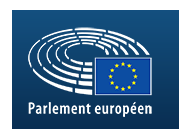Document type Response from the European Commission to question E-003140/2023
Authors: question: Annika Bruna (ID). Answer: Mrs Kyriakides on behalf of the European Commission
Question: Further to my written question E-005450/2020 entitled ‘Tighter controls for trade in puppies within the European Union’, the Commission stated that it was aware of non-compliances regarding trade in and imports of dogs.
It pointed out, however, that the legal framework had been strengthened by Regulation 2016/429, which made it mandatory to register dog breeding establishments and approve shelters and assembly centres from which dogs may be moved to other Member States. That regulation has been applicable since 21 April 2021, together with the regulation on official controls.
Puppy trafficking is still going on, however. On 18 October 2023, more than 400 animals – mainly dogs from breeding centres in eastern Europe – were rescued in Spain. Once again, the Spanish police found that documents, passports and certificates relating to animal health contained ‘anomalies’.
In order to reduce fraud, does the Commission propose to bolster legislation, for instance by requiring digitisation of animal health certificates and other documents issued by competent authorities so as to ensure that they are authentic and can be accessed by authorities in other Member States via an on-line database?
Answer: Combatting fraudulent practices in the context of cats and dogs trade requires a multifaceted approach, which does not only involve appropriate legal frameworks.
This approach also relies on enhanced targeted controls combined with effective and dissuasive sanctions, greater collaboration between relevant authorities at national and EU level and with stakeholder organisations, and finally regular public awareness campaigns.
In addition to the new control tools on establishments of origin provided to Member State authorities by Regulation (EU) 2016/429 and its supplementing legislation, the Commission would like to stress that issuance of animal health certificates, which must accompany movements of dogs and cats within the EU, and notification of such movements by the competent authority of origin to the competent authority of destination is done digitally through TRACES, the Commission’s platform used by the EU for sanitary and phytosanitary certification and border clearance operations.
As regards EU pet passports, which must accompany every individual dog and cat being moved within the EU and are still in a paper format, they must comply with specific security features laid down in Regulation (EU) No 577/2013.
Moreover, their distribution is limited to authorised veterinarians and organised under the supervision of relevant Member State authorities.
In order to reinforce measures to combat illegal trade in dogs, including via imports from third countries, the Commission adopted for the first time, on 7 December 2023 a legislative proposal on the welfare of dogs and cats and their traceability.



